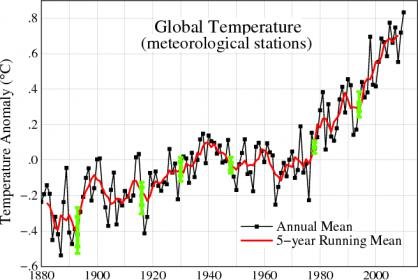Buster
TSP Talk Royalty
- Reaction score
- 109
Annual Weather Summary: November 2011 to October 2012
Winter will be colder than normal, especially in February. Other cold periods will occur in mid- and late December and mid- and late January. Precipitation and snowfall will be below normal in the east and above normal in the west. The snowiest periods will be in early and mid-December, early to mid-February, and mid-March.
April and May will be much cooler and a bit drier than normal. Winter will be colder than normal, especially in February. Other cold periods will occur in mid- and late December and mid- and late January. Precipitation and snowfall will be below normal in the east and above normal in the west. The snowiest periods will be in early and mid-December, early to mid-February, and mid-March.
Summer will be cooler and drier than normal. The hottest periods will occur in mid-July and early August. September and October will be cooler and drier than normal in most of the region.
http://www.almanac.com/weather/longrange/region/us/9
Heavy snow, brutally cold temperatures predicted for Midwest
According to AccuWeather.com's forecast, it looks like the Midwest will be dealt with the worst weather this winter. Bitterly cold blasts of arctic air are expected to invade the northern Plains, Midwest and Great Lakes December through January, while snowfall averages above normal.
While the coldest temperatures are forecast for Minnesota and Chicago might have the heaviest snowfalls, snowfall totals in Ohio are predicted to be above normal with plenty of heavy lake-effect storm events.
To add to the area's misery, the heavy snowfalls are expected to linger, stretching colder-than-normal weather into early spring.
http://www.cleveland.com/weather/blog/index.ssf/2011/10/heavy_snow_brutally_cold_tempe.html
Winter forecast: Brutal cold, snow for Midwest
Another punishing winter is likely for the north-central USA, according to a forecast released today by the private weather forecasting firm AccuWeather.
While the Northeast and Mid-Atlantic shouldn't see a winter as severe as last year, bitterly cold blasts of arctic air are expected in the northern Plains, Midwest and Great Lakes in December and January, with above-average snowfall, according to AccuWeather long-range meteorologist Paul Pastelok.
Chicago, which endured several blizzards last winter, could be one of the hardest-hit U.S. cities in terms of both snow and cold, he says.
In the South, there is little hope for Texas to escape its epic drought this winter, as below-average precipitation is predicted for most of the state.
However, severe weather and flooding rains could again batter the lower Mississippi Valley and Southeast in February, AccuWeather forecasts.
The main climate factor this winter is La Nina, a phenomenon that occurs when sea-surface temperatures across the equatorial central and eastern Pacific Ocean are below normal. La Ninas often produce a volatile weather pattern for the Midwest and Northeast during the winter but also tend to produce drier-than-average conditions across the southern tier of the USA.
http://content.usatoday.com/communi...ediction-forecast-harsh-midwest-accuweather/1




